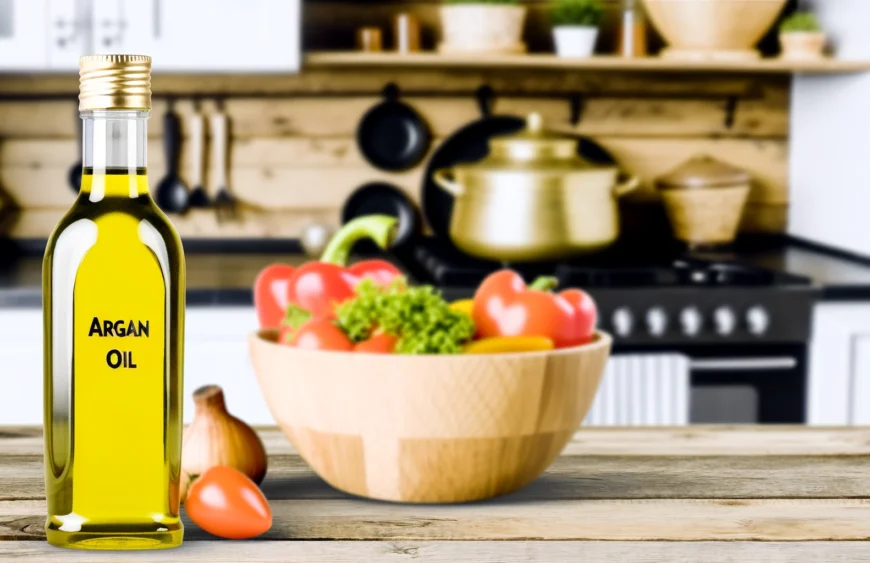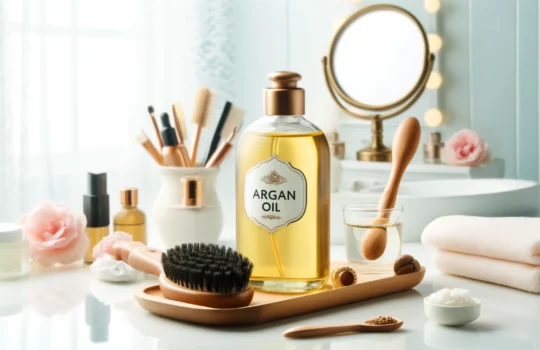In recent years, argan oil has emerged as a sought-after ingredient, celebrated not only for its cosmetic benefits but also for its culinary uses. Extracted from the kernels of the argan tree, native to Morocco, argan oil is often dubbed “liquid gold” due to its numerous health advantages and exquisite flavor. This article delves into the myriad benefits of using argan oil for cooking, its nutritional profile, and practical tips for incorporating it into your daily recipes.
Nutritional Benefits of Argan Oil
Argan oil is a powerhouse of nutrition, offering a wealth of essential vitamins, minerals, and healthy fats. Here are some of the key nutritional benefits:
- Rich in Vitamin E: Argan oil is an excellent source of Vitamin E, a powerful antioxidant that helps protect cells from damage and supports skin health.
- Healthy Fats: It contains monounsaturated and polyunsaturated fats, which are beneficial for heart health and can help reduce bad cholesterol levels.
- Minerals and Antioxidants: The oil is also packed with various minerals and antioxidants that contribute to overall health and well-being.
Enhancing Flavor with Argan Oil
Argan oil’s unique nutty flavor can elevate the taste of a wide range of dishes. Its culinary versatility makes it an ideal addition to various recipes:
- Dressings and Dips: Add a few drops to your salads or hummus to impart a rich, nutty flavor.
- Marinades: Use argan oil as a base for marinades to enhance the taste of meats and vegetables.
- Drizzling: Drizzle it over grilled vegetables, fish, or pasta for an exquisite finishing touch.
- Baking: Substitute butter or other oils with argan oil in baking to give your pastries a unique twist.
Health Benefits of Argan Oil in Cooking
Incorporating argan oil into your diet can offer several health benefits. Here are some supported by research and expert opinions:
- Heart Health: The healthy fats in argan oil can help lower bad cholesterol levels, reducing the risk of heart disease.
- Anti-Inflammatory Properties: The antioxidants and Vitamin E in argan oil have anti-inflammatory properties that can help reduce inflammation in the body.
- Digestive Health: Argan oil has been traditionally used to improve digestive health, aiding in the absorption of nutrients and reducing inflammation in the gut.
Practical Tips for Incorporating Argan Oil into Cooking
Integrating argan oil into your cooking routine can be simple and rewarding. Here are some practical tips and recipe ideas:
- Salad Dressing: Mix argan oil with lemon juice, salt, and pepper for a quick and healthy salad dressing.
- Grilled Vegetables: Toss your favorite vegetables in argan oil, sprinkle with herbs, and grill to perfection.
- Smoothies: Add a teaspoon of argan oil to your morning smoothie for an extra boost of nutrition.
- Moroccan Cuisine: Experiment with traditional Moroccan recipes such as couscous or tagine, which often feature argan oil.
Conclusion
Argan oil is not just a beauty elixir but also a versatile and nutritious addition to your kitchen. Its rich flavor and numerous health benefits make it a valuable ingredient for any home cook. Whether you’re looking to enhance the taste of your dishes or boost your overall health, incorporating argan oil into your cooking is a delicious and beneficial choice. Try it today and experience the wonders of this liquid gold in your culinary creations.
By following these tips and exploring the diverse uses of argan oil, you’ll not only enrich your meals but also support a healthier lifestyle. Embrace the goodness of argan oil and let your cooking shine with its unique flavor and nutritional value.






